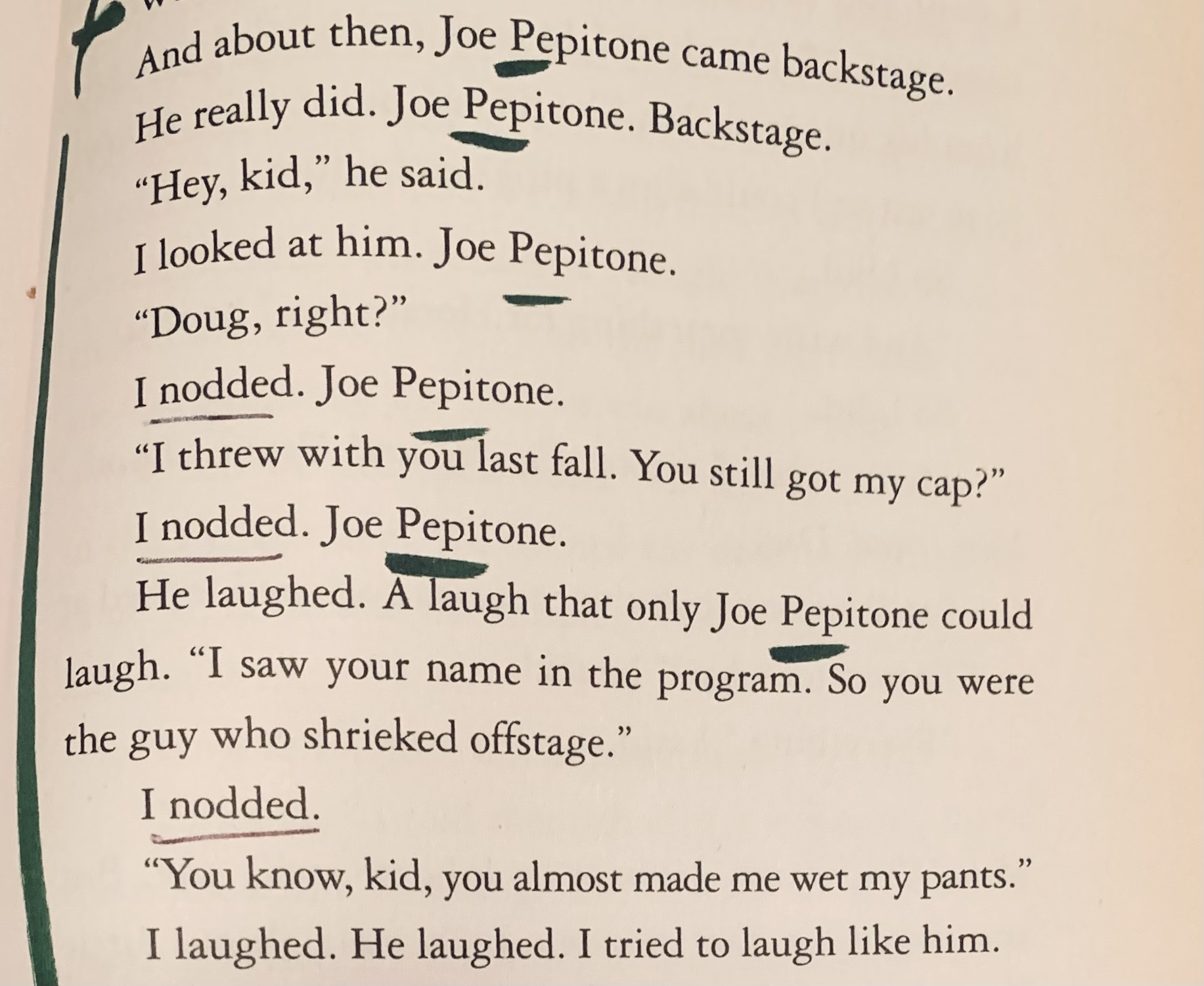On Creating Peak Story Moments

By Christine Carron
In The Power of Moments: Why Certain Experiences Have Extraordinary Impact, authors Chip Heath and Dan Heath explore why certain brief experiences jolt us, even transform us—and how we can learn to create such elevated moments in our life and work.
We writers, of course, endeavor to do the same thing in our stories: create peak, unforgettable narrative moments. Which is why so much of Heath and Heath’s book can be applied to storytelling. According to the authors, there are three key aspects to creating a peak moment:
- Boost sensory appeal, which they describe as “‘turning up the volume’ of reality.”
- Raise the stakes, defined as adding an “element of productive pressure.”
- Break the script, which is not just about integrating surprise but integrating strategic surprise.
To make a simple formula from this for our writing, we can say Sensory + Stakes + Surprise = Peak Story Moment.
Let’s test the formula on a delightful peak story moment in one of my favorite kidlit books, Gary Schmidt’s National Book Award finalist, Okay for Now, which tells the tale of fourteen-year-old Doug Swieteck, an unhappy "teenage thug" who finds consolation and a sense of possibility in friendship and art.
To set the moment up, you need to know that Doug is a Yankees fan and idolizes one particular player: Joe Pepitone. This scene happens right after Doug has made his stage debut in a Broadway production of Jane Eyre after learning that his idol is in the audience. Doug is backstage and right about then . . .

Let’s overlay the formula on this moment to see if it covers all the bases.
Sensory?
The moment definitely meets the sensory criteria. But interestingly the sensory punch is accomplished, in this instance, by the near absence of sensory details. The reader gets that Doug is near flatlining with excitement, which means the emotional truth of this moment is that Doug’s brain can’t effectively process any sensory detail.
That reality is shown (rather than told) by the combination of very simple statements for the dialogue beats, like the thrice-repeated I nodded, paired with the idolizing, breathless repetition of Joe Pepitone. No exclamation points. Just straight Joe Pepitone. Again and again and again. Take away the Joe Pepitones and the passage would not reach the peak that it reaches.
Stakes?
Yes, for sure. It’s Joe Pepitone, people.
Surprise?
A yes, here, too. The Joe Pepitone is a thread through the entire story, and has been well seeded by this point. It is a set-up waiting for the payoff, and this is the payoff, for Doug and the reader, because the reader immediately feels with Doug the surprise (and panic) even just to have Joe Pepitone in the audience earlier. But of course it doesn’t stop there. We get this moment.
Like Doug, the reader gets the stunned surprise of Joe Pepitone backstage plus the delight of the Joe Pepitone coolness. The latter is a surprise because it takes swing at the adage (the script) that you should never meet your heroes. That, You know, kid, you almost made me wet my pants, line seals the deal. Joe Pepitone is not a disappointment to Doug. Or to us. Phew! Strategic surprise, all the way.
----
Which all means . . . the formula works. And as a former business analyst I love when formulas like this work.
Will knowing such a formula result in any of us immediately writing masterful peak story moments? No, but it does give us some great grappling hooks to get started. Which is a very good thing . . . like Joe Pepitone level good.
The Goodjelly Prompt of the Week
- Analyze: Find one, or a few, of your own favorite story moments and analyze them to see if the Sensory + Stakes + Surprise = Peak Story Moment formula holds.
- Practice: Write a story moment where your protagonist meets their idol, using the scene above as inspiration and the peak story moment formula as a guide. Add some positive pressure to the exercise: give yourself only 15 minutes to write your prompt response. Ready . . . Set . . . Go!
- Revise: Check your work-in-progress. Do you have scenes without a peak story moment? If so, use the formula to help you sort out what might be missing: Sensory details, Stakes, or Surprise.
- Learn: Read The Power of Moments: Why Certain Experiences Have Extraordinary Impact for even more ideas and tips for creating unforgettable moments for your characters and your readers.
- Enjoy: Read Okay for Now and check out this video of Schmidt reading and excerpt of the story:
Don't miss a single dollop of Goodjelly
Subscribe for the Latest Blog Posts & Exclusive Offers!
You can easily unsubscribe at any time.


